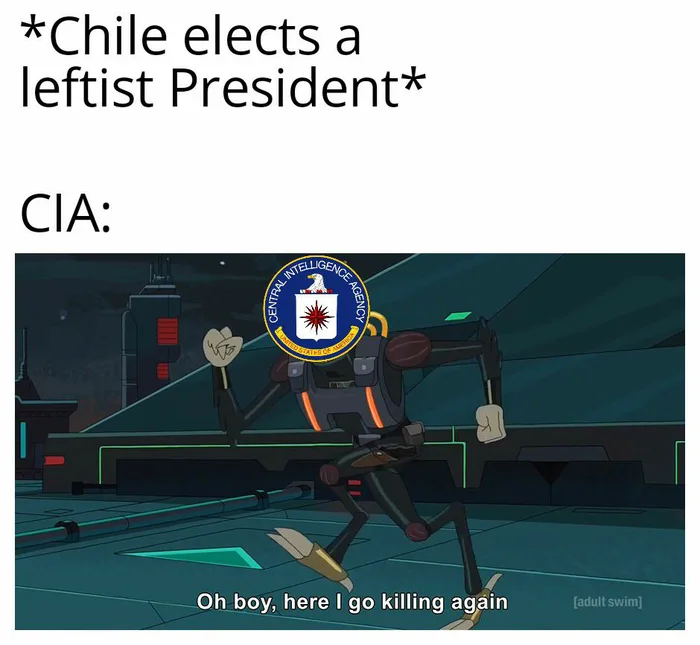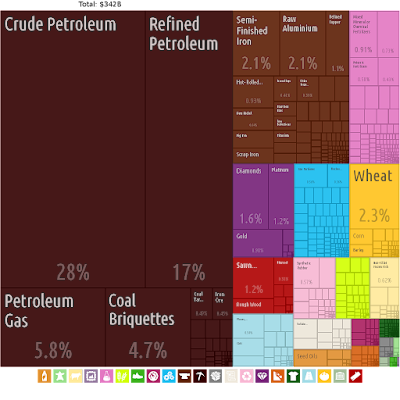.
edit 6th January: I updated a VERY old blog post with new and very much contradicting information. So I recommend to look at it briefly if you read among my2009 blog posts (I generally recommend to read old blog posts, for I think most aged well and many are timeless; they could have been written years if not decades earlier or later just as well).
I hardly wrote about it, but it looks as if the much-published fears of intensified war in the Ukraine won't be followed by action any time soon. The reported quantity of masses troops seemed inadequate for taking on the whole country anyway. The Ukrainians know how to fight in cold wintertime just as well as the Russians, so the avoidable troubles of wintertime made this season a rather implausible choice for aggression timing.
Some people have tried to understand the Russian perspective how oh-so threatening NATO is encroaching Russia. Well, Russia signed and ratified a guarantee of Ukrainian sovereignty, and violates it. NATO and its members never wrote, signed or ratified any promise to Russia about limiting what countries could join it. The countries that join NATO do so as sovereign countries who have the right to do decide this way. Russia's great power ambitions are fundamentally about disrespecting the sovereignty of neighbouring countries, it fails to be an attractive alternative to NATO/EU and it proved to be untrustworthy.
Far right wingers in Europe and the U.S. have begun to like Russia because of the pretence of "strong man" in power, chauvinism, gayhating and just in general oppression of people whom right wingers don't like anyway. That Russian political culture is a culture of stagnation and exploitation; Russia's economy is crap because oligarchs ruin or suppress every effort of actually creating a good new business. The quality of life is crap, and would be even crappier if Russia hadn't so many natural resources to exploit. They can hardly export anything but raw materials and barely refined raw materials because their economy is so shit at everything else, particularly at everything high tech.
Russian exports 2017:
for comparison: German exports 2017:
Russia is a failing nation, and its politicians are corrupt, and not better than ours at all.
Russian ambitions of dominance over other countries is no more worthy of agreement than American and Israeli habitual occupation and bombing of other countries.
S O




Russia holds great potential as a future exporter of fresh water and windpower, converted into liquid hydrogen, to China and Europe, maybe even India. Canada and Alaska hold the same promise for the US mainland. Global warming is likely to make such projects more acute in demand. China currently transfers water internally from the South to the North, but the quantity is insufficient for demand and in addition much of the water is too polluted for direct human consumption. The US and Europe have less polluted water, giving them more leeway to manage the drought problems due to climate change by other means and Europe has Norway for fresh water reserves and windpower. Do you see Russia capable to invest into windpower and waterpipelines to continue to play a role as exporter in the 21st century?
ReplyDeleteSome oligarchs control oil, gas, coal, period. Russia is in a standstill of development, if not in retrograde movement.
DeleteSo far unused geographical potential matters little. The foreign policy of Putin ensures that there wouldn't be customers in Europe for any products where Russia is but one of many alternative suppliers. We'd rather spend what's needed to keep Tunisia and Morocco stable and get solar powered electricity and lH2 from there than to deal with Russia.
That, by the way, is a possible geostrategic path for Europe in the 21st century; to become a Mediterranean-stabilising force that draws energy from Northwest Africa. I don't know how complicated the relationship of France with these countries really is, though.
Algeria and France have a difficult relationship for historic reasons. Currently, Morocco and Algeria might get ready for another conflict over their border, which influences how Morocco relates to France, Israel and the US.
DeleteI had contact with Moroccans and Tunisians, who considered themselves native speakers of French. With all inhabitants of the Maghreb, the affinity for French is an indicator for their parent's social standing. The more wealthy and less religious are more likely to be fluent in French and highly educated.
Where these countries shop their military gear is an indicator how they position themselves in international relations. Morocco is the only one using significant amounts of French made gear. Tunisia shops mainly American and Algeria prefers Russian, but all have a mix from various sources.
It's possible that Spain and France have good relations with Morocco, Germany with Algeria, while Italy connects with Tunisia.
@Krt "... great potential as a future exporter of fresh water ... Canada and Alaska hold the same promise for the US mainland. "
DeleteIt is far fetched to think that Alaska will ever export H20 to the lower 48 states - the distance is enormous and the terrain between Alaska and major population centers is ridiculously rugged. Besides, the Great Lakes comprise roughly 22-25% of the world's un-frozen (liquid) fresh water supply and the bordering states/provinces have an accord to not sell the water (China already asked). And then there is the Mississippi river (~3800 km)and Hudson Bay basin system, so there is zero reason to ship fresh water around the continental USA, unless we want to try and irrigate a lot of desert in the west, which is silly.
GAB
With global warming a reduction in precipitation is expected, which could at least in part be countered thru water imports and in part thru desalination. You don't have to go thru the mountains, you can transfer fresh water thru a pipeline at the bottom of the sea.
DeleteHowever, I think this a minor business field compared to liquid hydrogen trade from wind and solar power.
@KRT: "You don't have to go thru the mountains, you can transfer fresh water thru a pipeline at the bottom of the sea."
DeleteThis is even more problematic; the west coast of North America is very tectonically active, and installing a pipeline would damage the aquatic plants like the giant kelp beds and fisheries.
The biomass of California's coastal zone is many many times that of the entire state; your proposal to damage this seems preposterous.
Surely the correct public policy and economic solution is deter huge numbers of humans from living in coastal and high plains deserts, when there remains plenty of land in the mid-west and eastern half of the country.
GAB
The EU actually publishes studies on the impact of the energy transition on trading partners, here it is well documented that on an absolute scale Russia will by far be hit hardest, on a relative scale some MENA countries.
ReplyDeleteThe Energy transition in Europe will most likely destroy the market for >70% of the Russian energy exports until 2040, and there is no indication that Putin is able to counter this with better economic policies.
If Russia does in fact lose out due to an "energy transition" in Europe that will be due to the fact that European energy suicide will diminish the possibility for trade interaction and import and servicing of state of the art industrial production equipment (until mid-late 2030's when both import substitution and Chinese quality improvements, both organic and through acquisition of bankrupt European mechanical engineering firms, will significantly decrease dependence on Europe for industrial modernisation).
DeleteMoreover - 1) the Russians are preparing to sell more energy to China through pipeline and to rest of Asia by ship and 2) the increasing scarcity and value of energy may lead them to want to curtail energy export as a fraction of production anyway.
Your opinion about the evil barbaric Untermenschen is noted, yet again, it is absolutely unexceptional since you are merely restating the ideological mantra of the German mainstream. I do find it amusing that Germans still cling to this ideological crutch even 70+ years after the war. If Hitler becomes the topic of conversation, Stalin must follow short after - "he was even worse, ofc..." etc. etc.
ReplyDeleteRussia is no paradise, but equating Germany and Russia with their wildly different geographies and histories - especially trade history - is bunk, particularly in the field of exports. Btw, there are good signs that various industrial sectors in Russia are being revived - shipbuilding, aeronautics, electronics, while German industrial production has been in continuous decline since 2018. By 2040 the situation will have changed quite a bit. It is also funny that you bang on about oligarchs, yet have nothing to say about the capitalist struggle for markets - which for Russian industry and high-tech vanished overnight in 1991 together with supply chain disruptions.
As regards NATO - ofc there is always choice. The choice to start a war or to avoid it, or even to avoid starting down a path whose ultimate destination is war. The historical trajectory of confrontation is quite clear: either start deviating now or run into big problems in 2035-40. Sure, blame one side if you wish, that'll be a great help.
The markets for Russian production vanished in 1991 because they had hardly anything but raw materials, refined raw materials, weapons and spare parts on offer that was competitive. The Comecon had subsidised the Soviet economy by leeching from Warsaw Pact allies (especially East Germany). This enabled the warlike share of military and arms industry in the Soviet society and the investments in Siberian development.
DeleteThe issue today is that they had three decades to change their structure and achieved almost nothing because the economy is captured by the oligarchs.
Compare this to Poland or Czech Republic and the failure becomes obvious.
Czech Republic GDP per capita 1990: about 3900 USD, 2019: about 23500 USD
Poland GDP per capita 1990: about 1700, 2019: about 15700
Russia GDP per capita 1990: about 3500 USD, 2019: about 11500 USD
The Russian economic policy is utter crap and the root cause for Russian weakness and instability. Saber rattling doesn't change this. Russian GDP per capita could easily be double of what it is if Russia had had good economic and foreign policies.
The "historical trajectory" that you imagine is bollocks. Russia has never in all its history attacked Europeans without them being divided. Additionally, it only attacked the Ottoman Empire whenever the latter seemed to be weak.
Unity and strong deterrence is what protects peace in Europe against Russians. Both is quite easily feasible considering the actual weakness of Russia, which means that other threats come close to the #1 threat scenario.